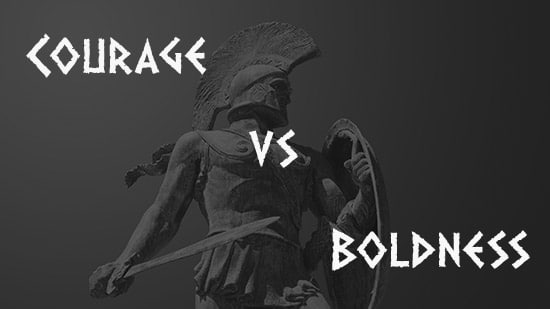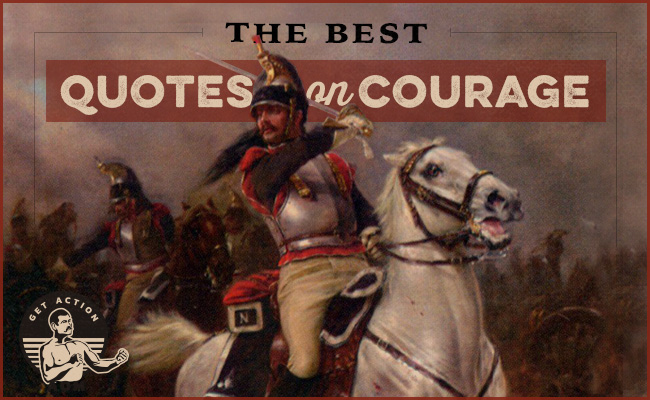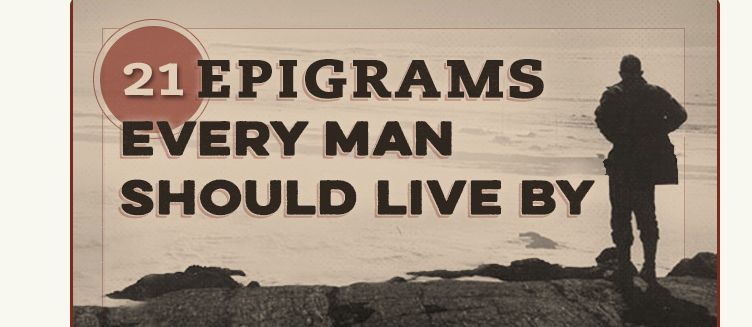What causes one culture to flourish while another flounders?
Why do some civilizations reach great heights only to fall mightily?
Historians have dedicated great tomes to these questions. Edward Gibbon’s Decline and Fall of the Roman Empire and Oswald Spengler’s Decline of the West are two prime examples of this line of inquiry.
But another can be found not in a work of non-fiction, but that of historical fiction. In Tides of War, author Stephen Pressfield provides a fictionalized account of one of the greatest conflicts in history — the Peloponnesian War — fought between two of the West’s greatest civilizations: Athens and Sparta.
While Tides of War is a work of historical fiction, Pressfield went to great lengths to maintain the integrity of the actual events described, relying on primary sources from Thucydides and other Greek historians. He also worked to capture the ethos of the time, and the men who inhabited it.
Peppered in between Pressfield’s thumos–inspiring depictions of battle, are penetrating deductions about the cultural forces going on behind the scenes — the differences between the warring parties’ mindsets and principles, and how these differences led to mighty, imperialistic Athens falling to modest, republican Sparta.
While the decline of a civilization is often chalked up to economics or politics, Pressfield theorizes that Athens deteriorated because one particular aspect of its individual and national character degraded, and another was substituted in its place.
Sparta and Athens: A Tale of Two City-States
Despite living in close proximity with one another (the cities were only about 150 miles apart) and sharing the same gods, the Greek city-states of Athens and Sparta were more different than alike. While Sparta was more communal (some would even say fascist), Athens celebrated individual liberty and freedom. While Sparta disdained wealth and luxury (going as far as outlawing money), Athens was a commercial empire. While Sparta’s military might lay in their fierce and indomitable army, Athens ruled the seas with their navy. Sparta was content with remaining a small and independent city-state; Athens was much more imperialistic — ever seeking to expand its influence politically, economically, and culturally.
The Spartans valued things like poetry, music, and philosophy more than is popularly believed, but such pursuits were decidedly subsumed by an emphasis on military training. This focus created one of the most effective, disciplined, and fearless armies in the world. Athens, on the other hand, celebrated art and philosophy as the pinnacle of human flourishing, and produced aesthetic masterpieces along with many of the most influential thinkers and philosophers in Western history, including Socrates, Plato, and Aristotle.
Athens and Sparta differed politically as well. Sparta maintained a democratic system with a balanced constitution that divided power among three groups. A system of checks and balances prevented any one group from gaining too much power. Athenians, on the other hand, governed themselves under a radical democracy in which every male citizen was expected to participate.
While Sparta and Athens banded together for the sake of Greek freedom during the Persian War, they were reluctant allies. Each had long kept a suspicious watch on the other. Spartans were particularly wary of the Athenians’ increasing imperialism, believing it was only a matter of time before they would try to conquer their slice of the Greek peninsula. It was exactly that fear which led to the thirty-year Peloponnesian War between Athens and Sparta. Though the decades-long conflict would decimate the power and strength of both city-states, Sparta emerged the victor.
While both Sparta and Athens had their particular strengths and weaknesses, by the time of the Peloponnesian War, the latter had forgotten the apothegm attributed to their mythological law-giver Solon: “Nothing in excess.” Athenian virtues and ideals were taken to such extremes that they became vices. Love of individual liberty and expression degenerated into narcissistic, hyper-individualism; robust commercial enterprise morphed into unhinged avarice; hardiness and restraint were replaced with softness and debauchery; active and healthy democracy devolved into mob rule and demagoguery.
Even the great philosophers of Athens — Socrates and Plato — became increasingly critical of Athenian degradation, contrasting the discipline and virtue of the Spartans with the civic and moral decay of their fellow citizens. They looked on with dismay as a once thriving culture was slowly eaten by the cancer of decadence.
Spartan Bravery and the Difference Between Courage and Boldness
What was the core difference between Athens and Sparta, then? We’ve dissected external differences between the city states, but was there a deeper, foundational quality that the Spartans maintained, and Athenians lacked, that led to the latter’s decline and ultimate defeat?
In Tides of War, Pressfield uses the Spartan naval admiral Lysander to give answer to this question. In perhaps the most stirring scene in the book, Lysander stands before thousands of Spartans and their allies in the lead-up to the Battle of Notium and gives them a rousing speech. In it, he lays out the differences between Athens and Sparta and makes the case for why the Spartan way of life is superior, and why, in the end, his men will prevail.
For Lysander, the heart of what separates Spartans from Athenians is this:
“We, Spartans and Peloponnesians, possess courage.
Our enemies possess boldness.
They own thrasytes, we andreia.
Pay attention, brothers. Here is a profound and irreconcilable division.”
Andreia, or courage, was the dominating quality of the Spartans; thrasytes, or boldness, was the dominating quality of the Athenians.
For the Greeks, the word andreia meant both courage and manliness. Courage was the sine qua non of being a mature man; the two qualities were inextricably intertwined.
Thrasytes, on the other hand, was more of a boyish trait.
“The bold man is prideful, brazen, ambitious,” Lysander explained. “The brave man calm, God-fearing, steady.”
While Lysander set up a stark dichotomy between boldness and courage, acting with the former can occasionally be useful even for a grown man; sometimes impulsive, even reckless action is needed to seize a fleeting opportunity.
But where boldness exists, it must always be coupled and harnessed with courage; courage must be the prevailing quality of a man’s character.
Why?
In his speech, Lysander elucidates the difference between men who primarily act from boldness, and those who primarily act from courage, and details “what kind of man these conflicting qualities produce.”
Below I highlight Lysander’s words from Tides of War, and explore how they applied both to the Spartans, and equally well to men today:
Boldness Is Impatient and Fickle; Courage Is Steady and Enduring
“Boldness honors two things only: novelty and success. It feeds on them and without them dies.”
“Boldness is impatient. Courage is long-suffering. Boldness cannot endure hardship or delay; it is ravenous, it must feed on victory or it dies. Boldness makes its seat upon the air; it is gossamer and phantom. Courage plants its feet upon the earth and draws its strength from God’s holy fundament.”
“The enemy’s weakness is time. Thrasytes is perishable. It is like that fruit, luscious when ripe, which stinks to heaven when it rots.”
“Those qualities most pleasing to heaven, we believe, are courage to endure and contempt for death.”
The Athenians were masters of the sea, a type of warfare that involves bold moves, surprise attacks, and quick, decisive battles. The Spartans primarily waged war on the land, and were prepared for long marches and prolonged combat. In a sea battle, Athenians could either sail away when the conditions weren’t right to engage, or strike the enemy on their own terms; a warship, Lysander notes, “accomplishes nothing holding the line.” The Spartans, on the other hand, had to stay ever ready to fight, and be willing to engage the enemy even when it wasn’t convenient. This difference in martial strategies amounted to a difference in mindset as well: The Athenians lost heart when victories didn’t come quickly and easily, while the Spartans were prepared to slog it out — to hold the line — no matter the challenges or conditions. They possessed the courage of endurance.
Many men today often approach their own battles with an Athenian mindset. They get a great idea for a business or feel fired up about tackling a new goal. For a few weeks they feel a burning passion and excitement to do what it takes to make their new venture a reality. At first there’s lots of “sexy” stuff to do — pick a band name, choose a weight lifting plan, design their new website. They may find a little initial success, and feel as though they’re skimming through the water, the foam from the waves flying in their face. It’s exhilarating. Victory seems just around the corner.
Then setbacks arrive. Their initial success reaches a plateau. It starts taking a lot longer for things to get going than they anticipated. And there’s a lot more work than they expected. Hard work. Boring work.
Time goes on. They start working on their project less and less. Then they start ignoring it altogether. They make excuses. It feels like a slog, and shouldn’t something you’re passionate about be fun? They decide the problem isn’t their work ethic but simply that they’re pursuing the wrong thing and need to do something else. They get another burning idea; the excitement returns. For awhile. And then the cycle repeats itself.
These guys have thrastyes but not andreia; they have the boldness to start things but not the courage to finish them. When the hot sun of hardship and doubt rises over their project, their motivation evaporates. They have not developed the patience to stick with something when the initial excitement fades — the grit to push through difficult plateaus. They ravenously feed on newness and instant success, but have not learned how to sustain themselves on the sustenance of incremental progress — to switch from the fuel of beginning to that of building.
Swift and clever tactical maneuvers can certainly be keys to winning a battle; Lysander, in fact, was responsible for creating a strong navy for the traditionally infantry focused Spartans, and this fleet would help turn the tide of the Peloponnesian War. Yet victory, regardless of chosen tactics, ultimately depends on having a grunt mindset — the willingness to not only make bold moves, but to hold the line when such moves are met with resistance.
“Boldness is a mighty engine,” Lysander tells the Spartans, “but there is a limit to its reach and a rock upon which it founders. We are that rock…Our rock is courage, brothers, upon which their boldness breaks and recedes. Thrastyes fails. Andreia endures. Imbibe this truth and never forget it.”
Boldness is Impulsive and Reckless; Courage is Prudent and Prepared
“Men say I fear to face [Athenian general] Alcibiades; they taunt me for want of intrepidity. I do fear him, brothers. This is not cowardice but prudence. Nor would it constitute bravery to confront him ship for ship, but recklessness. For I reckon our enemy’s skill and observe that ours is yet unequal. The sagacious commander honors his enemy’s might. His skill is to strike not at the foe’s strength, but at his weakness, not where and when he is ready, but where he is lax and when he least expects it.”
“Courage is born of obedience. It is the issue of selflessness, brotherhood, and love of freedom…This is why we train, men. Not to sweat for sweat’s sake or row for rowing’s sake, but by this practice of cohesion to inculcate andreia, to lade the reservoirs of our hearts with confidence in ourselves, our shipmates, and our commanders.”
Before the Battle of Notium, Alcibiades, commander-in-chief of the Athenian forces, blockaded the Spartans, and tried to lure their nascent fleet out to battle. The Spartan warriors took the bait and chomped at the bit to have a go at their enemy. Their morale was high, their discipline and confidence were strong, and they felt ready to take on their foe. But Lysander initially held back, leaving his men feeling frustrated and restless.
Lysander explained to them that the patience engendered by courage was needed not only to endure the setbacks that arrived once a battle was already underway, but also to wait to strike in the first place until the right time. Lysander could see than the Athenian forces were yet stronger than those of the Spartans, and that further ship-building and training was needed to ensure that when they went to battle, they would emerge victorious. He was as restless to get things going as his men were, but he knew the moment called for the courage of control.
Lysander’s approach was in line with that of the philosopher Aristotle, who believed that courage represented the mean between recklessness and cowardice.
The cowardly man overestimates the risk of an endeavor and either won’t even attempt it, or endlessly delays it. He’s always got to do just a little more research on the competition, read a few more books on the subject, get in a little more practice before he gets started.
The reckless man underestimates the challenges he’ll have to face, and blindly and impulsively rushes into things. As a result of this impulsivity, his idea isn’t ready and flops, he doesn’t have the skill and confidence needed to find success, or he outright quits after realizing the kind of sacrifice victory will demand.
The courageous man avoids those extremes. He knows there’s a time for boldness, and a time for restraint. His hones the skills and confidence he’ll need for the fight ahead, but also realizes that sometimes you simply have to take action and learn as you go. He actively trains and prepares himself for the arrival of the right opening, but also knows there’s no such thing as the perfect opportunity. He neither dithers nor hastily surges; he uses practical wisdom to decide when the time is right to strike.
Spartan warriors thought it dishonorable to fight with rage or berserker-y, as such frenzied emotions are usually an emotional crutch, a cover for fear and deficiency of skill; instead, they went into battle with calm determination, full of the confidence of preparation, and the courage of control.
Boldness Is Covetous; Courage Is Content
“The bold man covets; he sues his neighbor in law court, he intrigues, he dissembles. The brave man is content with his lot; he respects that portion the gods have granted and husbands it, comporting himself with humility as heaven’s stewards.”
The greatness of the Athenians required them to constantly expand the reach of their empire. To fund lavish public works projects and maintain their impressive navy, the Athenians needed to bring as many city-states under their rule as possible. These subject peoples were required to send yearly tributes back to Athens, or were quickly and severely punished.
The Athenians’ lust for power, influence, and empire put them in quandary. Much like a cancer, survival of an empire requires constant growth. But we all know the typical end result of cancer.
It kills its host.
The Spartans, meanwhile, were content with being a small, rustic city-state. Their lifestyle was simple, minimalistic, and frugal. They had no taste for luxury or designs for empire, so they didn’t have to constantly find new sources of treasure to fund their civilization. They had the courage of contentment — the ability to say “enough!” Many historians credit this Spartan contentment to the durability of their democratic republican government, which lasted at least 580 years — making it the longest-lasting government with a democratic component in human history.
We’ll all face moments in our life when we’ll be tempted to go for more. More money, more prestige, more status. But it’s a hunger that can never be satisfied, and only grows the more you feed it. The siren call of power and wealth wafts with the promise of greater freedom, but ends up shackling your liberty. The more you crave status, the more likely you are to compromise your principles to get it. The more you buy stuff you can’t afford, the more you get into debt, and the fewer choices you can make in regards to your career and lifestyle. The more you take other people’s money, the more they own you.
Being content with little gives you the courage to say no to marketing propaganda, to ignore the Joneses, to keep your personal principles, to act when you wish and not from compulsion. In living, well, Spartanly, you gain true power, independence, and freedom.
Boldness Is Prideful; Courage Is Humble
“Athenians do not fear God; they seek to be God. They believe that heaven reigns not by might, but by glory. The gods rule by acclaim, they say, by that supremacy which strikes mortals with awe and compels emulation. Believing this, Athenians seek to please heaven by making clay gods of themselves. Athenians reject modesty and self-effacement as unworthy of man made in the image of the gods.”
“Our deficiencies may be overcome by practice and self-discipline.”
The Greeks primarily thought of courage in terms of martial valor — as a battlefield virtue. But it was also the quality that kept a man ready for war during times of peace — the virtue that drove a man to give his best during training, to constantly drill, and to maintain an austere, disciplined lifestyle that produced a strong body and an iron will, along with the hardihood to face any enemy.
Thus, while the Spartans were rightly renowned for their bravery on the battlefield, their courage was perhaps even more keenly demonstrated at home. Beginning at age seven, Spartan boys entered military training that centered on inuring them to hardship. They wore only a tunic in both summer and winter, subsisted on scanty rations, and constantly drilled in the martial arts. As Plutarch observes, Spartan warriors “were the only men in the world with whom war brought a respite in the training for war.”
The Spartans understood that victory is won not in the heat of battle, but in all the small tasks and practices that lead up to it — that what is needed is not only courage for special times of crisis, but the everyday courage of discipline.
Aristotle argued that courage “holds fast to the orders of reason about what he ought or ought not to fear in spite of pleasure and pain.” As another philosopher put it, courage is “the power to face a disagreeable present in the interest of desirable permanent ends.” Courage then is not only the will to keep going during big moments of threat, but also the ability to delay gratification, to put off short-term pleasures for long-term gains, to do hard and boring work in pursuit of the personal and greater good.
This kind of courage, the courage of discipline and self-mastery, requires humility.
Men who lead with audacity, rather than courage, who think they are special and entitled, who believe success comes more from inherent talent than effort, want to do fame-garnering and heroic deeds right off the bat. They feel they were born ready for glorious exploits. Grunt work is beneath them. Practice is unnecessary. They want success without sacrifice. They want to hack their way to the top.
They see the spectacle of the stage, without grasping the behind-the-scenes work it takes to put on the show.
They want to experience the satisfaction of fullness, without the pangs of hunger.
They are gods, and why should a deity bother getting down in the lowly muck of mastering fundamentals? Why should a god have to take an entry-level job? Why should attaining wealth require any more than four hours a week? Why should someone as special as themselves take things step-by-step instead of jumping right upon the throne?
In the rush to crown themselves, the bold stumble over their hubris, and forget that courage in the quiet and dullness of doing our “everyday duty” is the prerequisite to ascending to the clouds.
Boldness Seeks Glory; Courage Seeks Honor
“The bold man seeks to divide; he wants his own and will shoulder his brother aside to loot it. The brave man unites. He succors his fellow, knowing that what belongs to the commonwealth belongs to him as well.”
“In troubled times the bold man flails about in effeminate anguish, seeking to draw his neighbors into his misfortune, for he has no strength of character to fall back upon other than to drag others down to his own state of wickedness.”
At the age of 20, after over a decade of training, a Spartan citizen became eligible for military service. At this point, he joined a syssitia — a mess group of 15 other men. Each day a warrior was solemnly obligated to meet around the table and share a meal with these comrades, for the express purpose of building camaraderie. In fact, before the 5th century BC, the syssitia was simply known as andreia — which in this context meant “belonging to men.” As the men broke bread together, they learned to rely on each other and formed a bond of support that would enrich their days in times of peace, and contribute to military success in times of war.
Membership in a syssitia was thus mandatory for belonging to the homoioi — Sparta’s full-fledged citizens and soldiers. Homoioi meant “equals” and referred to the fact that Spartan men shared the same disciplined lifestyle, the same meals, the same dangers and risks, and the same code of conduct. The homoioi in other words was an honor group — a tribe of men pledged to check personal interest in support of their brothers.
Developing this courage of honor was of acute importance on the battlefield, as each Spartan warrior fought as part of a phalanx formation. Members of a phalanx marched forward as a single entity, and met the enemy together. Each warrior stood side-by-side with his brother, locking shields to form a wall of protection; each warrior depended on the courage of the man to left and right of him for success and survival. The phalanx was thus only as strong as its weakest link, and relied upon each member working together for the greater good. A man who acted dishonorably, who broke off because of personal fear, or personal ambition, put the whole phalanx at risk.
In seeking to honor, support, and protect their brothers, the Spartans lived for a purpose higher than self. In contrast, they felt their enemies lived only for their own interests. Boldness, Lysander argues, is marked by personal ambition — the desire to gain wealth and do deeds that will redound to one’s own glory.
Many modern men center their lives on this kind of personal ambition, and care nothing for how their exploits and foibles affect other people, and their country. They do whatever they want — whatever is best for themselves, gratifies their desires, and flatters their flaws. If cheating will get them to their goal, they cheat even if it hurts innocent bystanders. If the standards and ideals of manliness are too difficult for them to reach, they disparage them, or move the yardsticks in order to include themselves. If they feel like collapsing in self-indulgent pity when their friends and loved ones need them, they indulge this urge, bringing others down with them.
Such men have boldness, in the sense they “audaciously” do whatever they feel like doing. But they lack the courage of honor — the commitment to strengthen and uplift their fellows, celebrate a code of ideals, and respect others enough to do the right thing, even when it’s hard.
Especially when it’s hard.
Boldness is Blasphemous; Courage is Reverent
“In my father’s house I was taught that heaven reigns, and to fear and honor her mandates. This is the Spartan, Dorian, and Peloponnesian way. Our race does not presume to dictate to God, but seeks to discover His will and adhere to it. Our ideal man is pious, modest, self-effacing.”
“Boldness…is spawned of defiance and disrespect; it is the bastard brat of irreverence and outlawry.”
“Thrasytes presumes to command heaven; it forces God’s hand and calls this virtue. Andreia reveres the immortals; it seeks heaven’s guidance and acts only to enforce God’s will.”
For the ancient Greeks, hubris — outrageous pride that defied the gods — was the greatest sin. Killing men or raping women who had fled to the temple for protection from the gods was a common act of hubris during times of war. Destroying sacred property was another.
Hubris was knowing the will of the gods, but spitting on it out of spite.
As just discussed, thanks to their run of success, the Athenians began to think of themselves as gods, and thus had little use for the worship of greater deities. Thrasytes wrongly convinced them that they were entirely in charge of their own destinies. And so they began defying the gods. The night before the Sicilian expedition — a battle during the Peloponnesian War — all the heads of the Hermes statues in Athens were chopped off. Many suspected riotous Alcibiades was involved. Some would call this a silly prank, but for the Athenians about to embark on a major war expedition, it was a sign they thought themselves greater than the gods, and had no need for divine assistance.
The Spartans, on the other hand, maintained piousness. They understood that while they could prepare as much as possible or fight with all their might, oftentimes the results were out of their hands. The gods or fate doled out success or failure how they wished.
If they failed, they didn’t pout or sulk. They accepted it, often with laconic wit.
If they succeeded, they didn’t puff themselves up with pride. They understood that as the gods giveth, the gods taketh away. The most they could do was to be disciplined in virtue and arête — to be excellent men, and strong in andreia — and then to let the chips fall as they would.
Even in our age of secularism, respect for forces greater than ourselves is needed. The courage of reverence humbly recognizes that while we can strive all we want for a specific goal, sometimes the fates or the gods have another outcome in mind.
There’s a courage in striving to be your best, but also a courage in letting go of the false reality of total control. There’s a bravery in fighting to shape your destiny, and also in learning to as Nietzsche put it, amor fati — to not just accept your fate, but to love it.
Conclusion: Courage Is the Firewall Against Personal and National Decadence
Two-thousand years after the decline of Greek civilization, America’s Founding Fathers would mine the lessons of the divergent paths of Sparta and Athens. The Founders were astute students of classical history and looked to the two city-states for inspiration on how best to govern their nascent republic. While they rightfully abhorred many of the social practices of ancient Sparta (including infanticide, murdering-as-rite-of-passage, and state sanctioned adultery), they, like Athens’ famous philosophers, admired the Spartans’ stable, balanced constitution, and unbending discipline and principle. And while they praised the Athenian protection of individual freedom and revered their art and philosophy, they also saw Athens as an example of the societal rot that sets in when the love of personal liberty, luxury, commercial success, and democracy are not tempered with a devotion to duty, frugality, virtue, and honor.
They saw the danger of a becoming a people who primarily choose boldness, over courage.
For the republic to be a success, the Founders believed, individual men had to cultivate not only martial bravery, but the courage of endurance, control, contentment, discipline, reverence, and honor — courage that not only manifested itself on the battlefield but was exhibited in everyday life.
Courage is deciding to stay home and work on your side business when your friends are going out; courage is eating a chicken breast and broccoli when you really want a Big Mac; courage is keeping your junky car instead of getting an upgrade, and using the money saved to pay down your debt and become financially independent.
Courage is digging deeper into pat media narratives instead of coasting with the masses to form a political opinion; courage is taking on small ways to serve in your community instead of deciding that if you can’t make a big difference, it isn’t worth trying at all; courage is choosing sincerity and earnestness over cynicism and apathy.
Courage is deciding to live virtuously in your day-to-day life, even when those who lack integrity seem to be the ones getting ahead.
Courage is a man’s bulwark against physical cowardice and weakness.
Courage is a country’s firewall against civic and moral decadence.
“Boldness produces hubris. Hubris calls forth nemesis. And nemesis brings boldness low.
We are nemesis brothers…and no force between sea and sky may prevail against us.”








